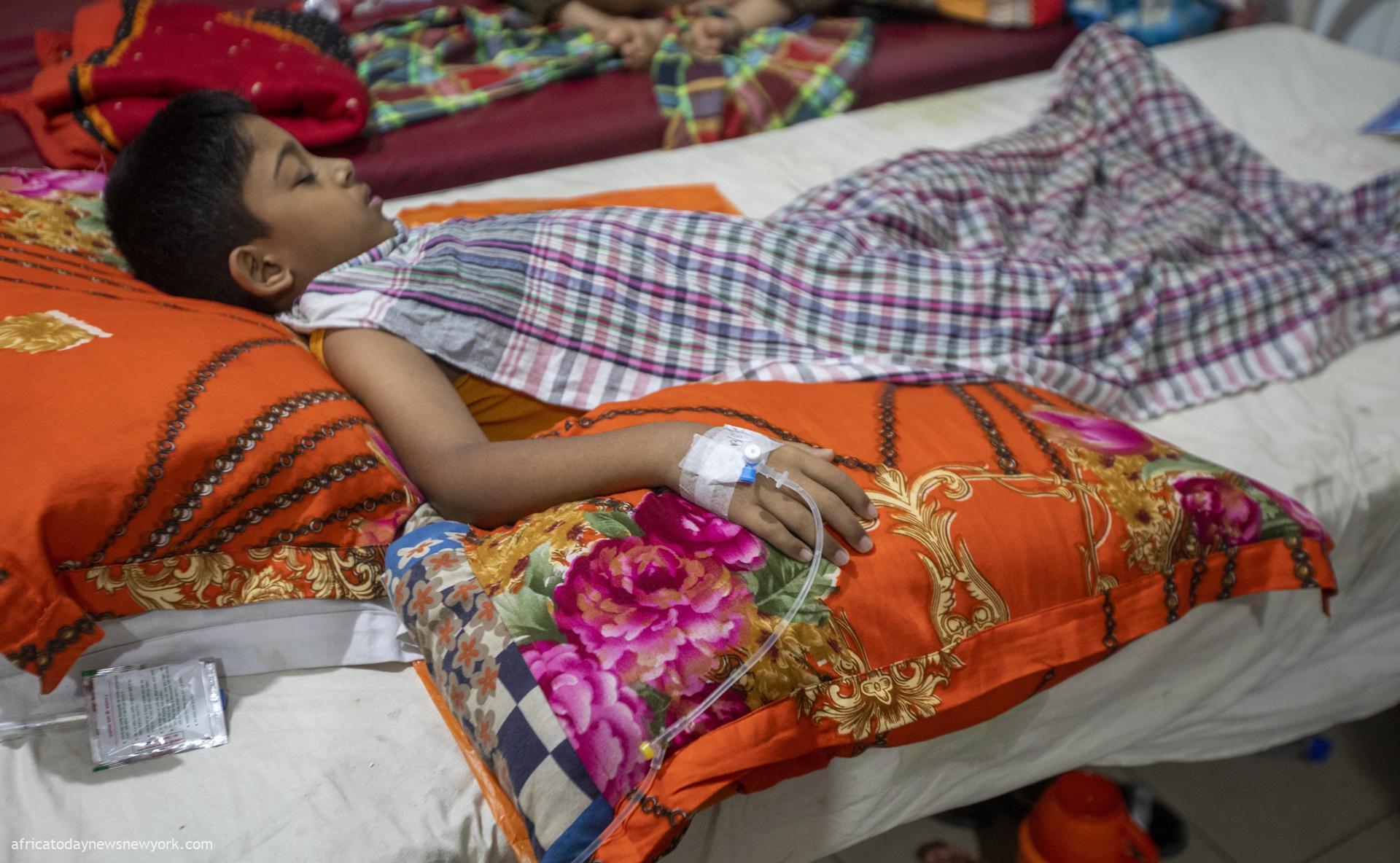This year, Bangladesh is grappling with its worst-ever dengue outbreak, with authorities reporting close to 1,000 deaths from the disease.
Abnormally wet monsoons have provided a conducive environment for the proliferation of dengue vector mosquitoes in stagnant, unclean water.
Containing the disease’s transmission has proven to be a significant challenge for officials, with hospitals pushed to their limits.
Dengue, in its worst forms, can induce internal haemorrhaging, a condition that can ultimately be lethal.
Headaches, nausea, and joint and muscle pain are among the recognizable symptoms of dengue.
Read also: ₦3,500 Per Bag: BUA’s Cement Sale Commences Monday
Endemic to tropical nations, dengue outbreaks frequently manifest in urban zones with substandard sanitation conditions, creating a conducive environment for the reproduction of virus-carrying mosquitoes.
In the past, dengue was a seasonal occurrence in Bangladesh, but the rise in frequency can be attributed to climate change, resulting in hotter and wetter monsoons since the initial outbreak in 2000.
Public health experts are caught off guard by the ongoing wave of infections, as it is driven by a more aggressive virus strain.
Doctors have pointed out that the deterioration in the condition of dengue patients is occurring at a much swifter pace than in recent years.
Officials reveal that, in the last two months, up to 20 individuals have lost their lives to dengue each day, pushing this year’s death toll beyond the combined total of the past 22 years.
Bangladesh has rolled out public awareness initiatives to prevent the emergence of mosquito breeding sites.
But more needs to be done, according to Dr Mushtaq Hussain, a public health expert.
‘Those concerned think that it may be a temporary disease, and that it will go away after a few days, so no effective or long-term measures are being taken,’ he told the journalists.
In every one of Bangladesh’s 64 districts, cases of dengue infections have been reported, as stated by the World Health Organisation.
Hospitals in Dhaka, the capital, are grappling with an influx of hundreds of dengue patients seeking treatment, putting additional strain on already overburdened facilities.
Intravenous fluids, crucial for addressing dehydration in dengue patients, are in short supply at hospitals.

